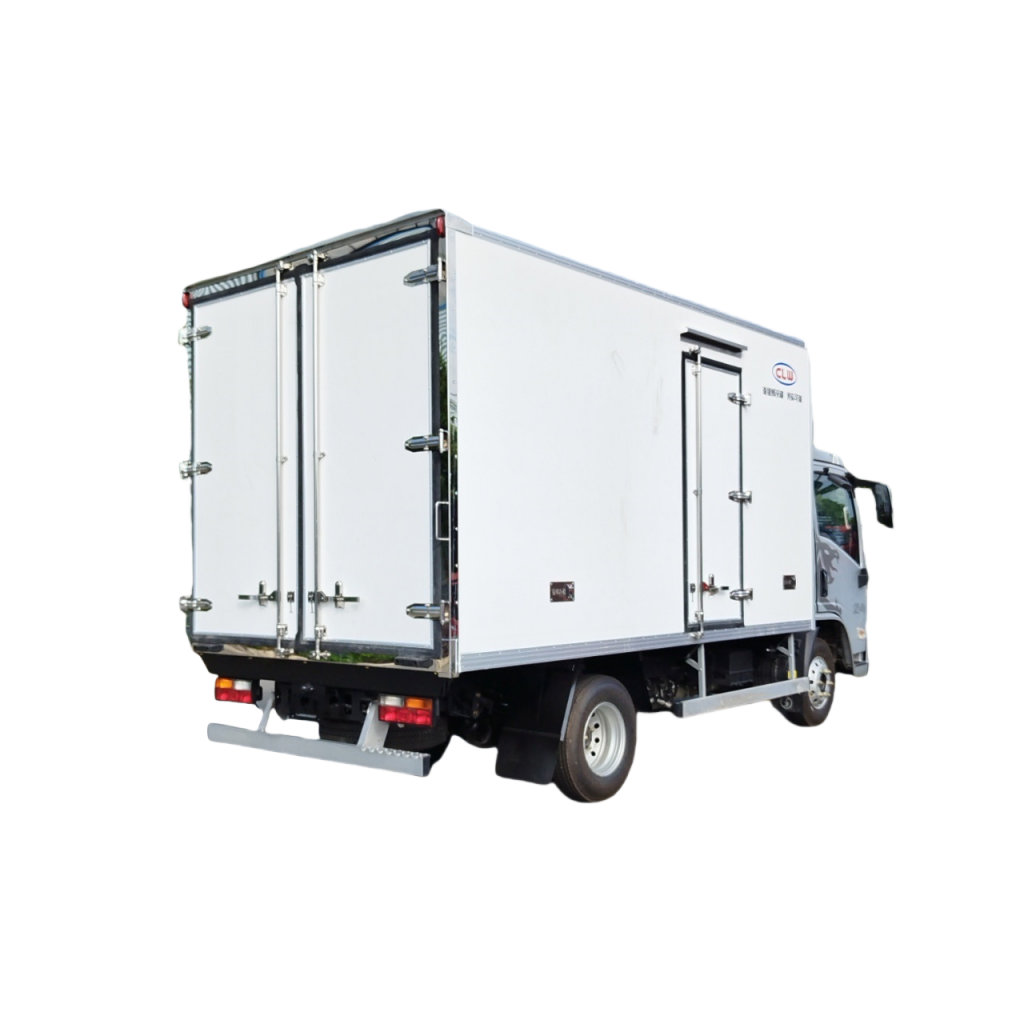Analyzing the Trends and Factors Influencing Work Truck Trailer Sales

Introduction
Work truck trailers play a crucial role in various industries, including construction, agriculture, transportation, and logistics. These trailers are essential for transporting heavy equipment, machinery, materials, and goods efficiently. As the demand for work truck trailers continues to grow, understanding the trends and factors influencing work truck trailer sales is essential for manufacturers, dealers, and buyers alike. In this article, we will analyze the current landscape of work truck trailer sales, explore key trends shaping the industry, and examine the factors driving the market forward.
1. Overview of the Work Truck Trailer Market

The work truck trailer market encompasses a wide range of trailer types, including flatbed trailers, dump trailers, utility trailers, and specialized trailers for specific industries. These trailers are designed to meet the unique needs of businesses that rely on heavy-duty transportation for their operations. The market for work truck trailers is highly diverse, with different sizes, configurations, and features available to cater to various applications.
2. Trends Shaping Work Truck Trailer Sales
a. Technological Advancements: One of the key trends influencing work truck trailer sales is the integration of advanced technologies. Manufacturers are incorporating features such as telematics systems, GPS tracking, and remote monitoring capabilities to enhance the efficiency and safety of work truck trailers. These technological advancements not only improve operational performance but also provide valuable data insights for fleet management.
b. Best box trucks with lift gates and Energy Efficiency: With a growing focus on sustainability and environmental conservation, there is an increasing demand for work truck trailers that are energy-efficient and eco-friendly. Manufacturers are developing trailers with lightweight materials, aerodynamic designs, and alternative fuel options to reduce carbon emissions and operating costs. Buyers are also showing a preference for electric and hybrid trailers that offer cleaner transportation solutions.
c. Customization and Versatility: Another trend in the work truck trailer market is the demand for customizable and versatile trailers that can adapt to different applications. Customers are looking for trailers with modular designs, adjustable features, and innovative solutions that can meet their specific requirements. Manufacturers are responding by offering a wide range of customization options, from payload capacity to loading configurations, to cater to diverse industry needs.
d. E-commerce and Last-Mile Delivery: The rise of e-commerce and the growing demand for last-mile delivery services have had a significant impact on work truck trailer sales. As online shopping continues to expand, there is a greater need for efficient and reliable transportation solutions to deliver goods to customers quickly. Work truck trailers play a vital role in the logistics chain, enabling businesses to streamline their delivery operations and meet customer expectations.
e. Safety and Compliance Regulations: Safety remains a top priority in the work truck trailer industry, with manufacturers focusing on enhancing driver visibility, stability control, braking systems, and other safety features. Compliance with regulatory standards and industry certifications is also a key concern for both manufacturers and buyers. Ensuring that work truck trailers meet the required safety and quality standards is essential to building trust and credibility in the market.
3. Factors Driving Work Truck Trailer Sales
a. Economic Growth and Infrastructure Development: The overall economic growth of a region directly impacts work truck trailer sales, as businesses invest in transportation assets to support their operations. Infrastructure development projects, such as road construction, building renovations, and utility installations, drive the demand for work truck trailers to transport equipment and materials to job sites. As economies expand and urbanization accelerates, the need for work truck trailers is expected to rise.
b. Industry Demand and Replacement Cycles: The demand for work truck trailers is closely linked to the performance of key industries such as construction, agriculture, manufacturing, and logistics. When these industries experience growth, there is a corresponding increase in the need for transportation equipment, including trailers. Additionally, as existing trailers age and require replacement due to wear and tear, accidents, or technological obsolescence, there is a natural cycle of trailer sales that drives market activity.
c. Innovation and Product Development: The continuous innovation and product development efforts of manufacturers play a significant role in driving work truck trailer sales. By introducing new features, technologies, and designs, manufacturers can attract buyers looking for advanced solutions that improve efficiency, productivity, and safety. Product differentiation through innovation is a key strategy for manufacturers to stay competitive in the market and capture the interest of potential customers.
d. Regulatory Environment and Government Policies: The regulatory environment and government policies related to transportation, emissions, safety, and trade can influence work truck trailer sales. Changes in regulations, such as emission standards, weight restrictions, or import/export tariffs, can impact the cost of manufacturing and selling trailers. Manufacturers and buyers need to stay informed about regulatory developments to ensure compliance and make informed decisions about trailer purchases.
e. Customer Preferences and Industry Trends: Understanding customer preferences and industry trends is essential for driving work truck trailer sales. Buyers are increasingly looking for trailers that offer value-added features, durability, and reliability to support their operations. By staying attuned to evolving market trends, manufacturers can align their product offerings with customer needs and stay ahead of the competition. Factors such as pricing, quality, after-sales support, and brand reputation also influence customer buying decisions in the work truck trailer market.
4. Conclusion
In conclusion, work truck trailer sales are influenced by a combination of trends, factors, and market dynamics that shape the industry landscape. Technological advancements, sustainability initiatives, customization options, e-commerce growth, safety regulations, economic conditions, industry demand, innovation, regulations, and customer preferences all play a role in driving the sales of work truck trailers. Manufacturers, dealers, and buyers need to stay informed about these trends and factors to make informed decisions and stay competitive in the market. By understanding the evolving needs of businesses and adapting to changes in the industry, stakeholders can navigate the complexities of the work truck trailer market and capitalize on emerging opportunities for growth and success.
